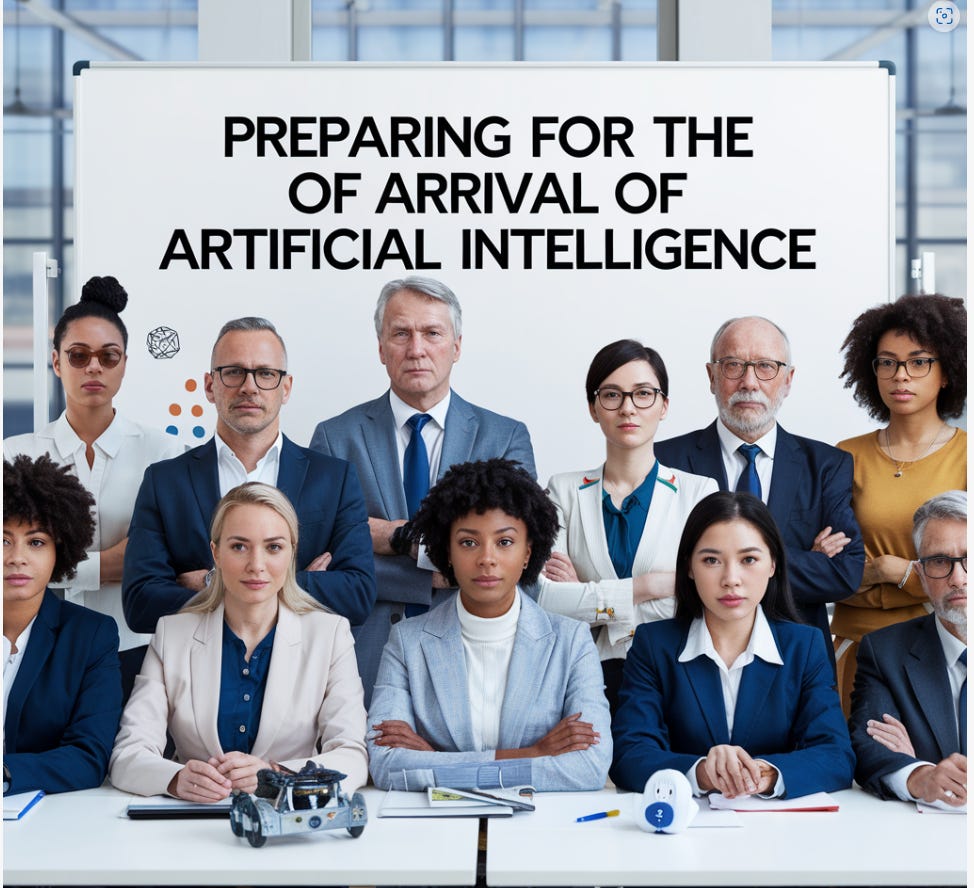The US Government Has Been Advised to Be Prepared for AGI. Is Your School Preparing?
Yesterday, the highly reputable RAND Corporation advised the US government to prepare for the possible near-term arrival of AGI, a short-hand for human+ level intelligence, even if the time-frame is uncertain.
As noted in the report, the idea that LLMs alone will take us to AGI is heavily contested, but there are plenty of other alternative and/or complementary architectures.
All of these approaches are currently the subject of extensive research.
I think the advice that has been given to governments also applies to schools.
Artificial General Intelligence (AGI) will first reshape how learning happens inside the classroom. Always-on AGI tutors can diagnose a student’s misconceptions in real time, generate fresh examples that match the learner’s interests, and adjust the difficulty curve on the fly, turning each lesson into a personalized feedback loop. Because a single model can handle every subject and language, even small, under-resourced schools gain access to world-class instruction and instant translation—flattening today’s gaps in course quality between wealthy and low-income districts.
AGI will also redefine what students learn and why. When models can recall facts instantly and compose polished essays in seconds, the premium shifts from memorization to higher-order capacities: framing good questions, evaluating evidence, collaborating across cultures, and steering AI systems responsibly.
Curricula will likely place heavier weight on project-based learning where students orchestrate multi-agent AI “teams” to research, prototype, and iterate—skills that mirror the future workplace in which managing intelligent agents is as common as managing human colleagues today. Coding courses turn toward “prompt engineering,” systems thinking, and governance dilemmas; humanities classes emphasize media forensics, narrative construction, and the ethics of synthetic content.
At the institutional level, the traditional architecture of schooling starts to loosen. If an AGI tutor can teach geometry as effectively at 10 p.m. as at 10 a.m., seat-time requirements and age-graded cohorts give way to progress-based pathways. Micro-credentials anchored in demonstrated competence rather than semester credits let students accelerate or slow down without stigma, and cross-district consortia emerge to share AI-generated courseware. Meanwhile, assessment shifts from one-shot, high-stakes exams toward continuous “performance telemetry” collected while students solve authentic problems, write code, or build community projects with AI collaborators.
Teachers’ roles evolve rather than disappear. Human educators become designers of rich learning experiences, mentors who cultivate curiosity and resilience, and custodians of classroom culture. They supervise AI outputs for bias or hallucination, teach students how to critique machine reasoning, and intervene when motivation flags or conflict arises—areas where empathy and professional judgment remain irreplaceable. Teacher preparation programs, in turn, add data-literacy, AI ethics, and human-AI interaction design to their core requirements.
Finally, AGI amplifies both opportunity and risk for students’ futures. On the upside, universal tutoring and adaptive pathways can raise baseline achievement worldwide and unlock lifelong upskilling for adults whose jobs are constantly reshaped by automation. On the downside, schools must confront new equity divides (who controls high-quality AGI, whose data train the models), privacy threats from granular learning analytics, and existential questions about purpose when machines match or exceed human creativity. Preparing students therefore means not only equipping them with agile cognitive tools but also embedding civic deliberation, ethical reasoning, and mental-health supports into the very fabric of schooling, ensuring that the next generation can harness AGI as a partner—not a master—in shaping a just and flourishing society.
__
As Geoff Hinton repeately says, AGI is coming; it’s a question of when not if.
There is no better time to form your “AGI Committee” and get to work.






